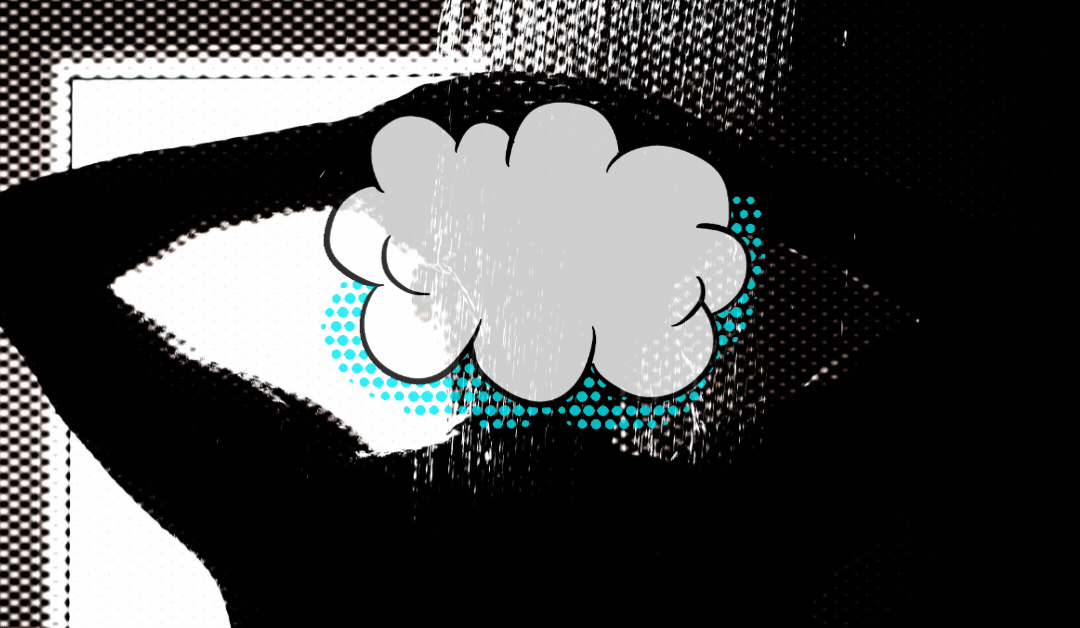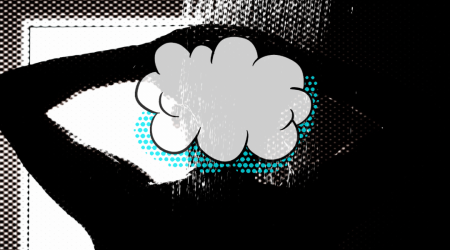
I have long since gotten out of the habit of writing down my best ideas in felt-tip pen. Felt-tip ink runs, after all, and half of the time I have a brainstorm to record I am dripping wet. That’s because more often than not I have dashed straight from the shower. I am not remotely alone in finding the shower a wonderful place to be wildly creative.
Social media is rife with groups dedicated to sharing so-called “shower thoughts.” “One of my favorites on Reddit is ‘People often talk about how every snowflake is unique, but every potato is unique, too, and nobody talks about that,’” says Zachary Irving, assistant professor of philosophy and cognitive science at the University of Virginia.
[time-brightcove not-tgx=”true”]What is it about the shower that brings out the Eureka! in us? And what is it about similar, seemingly mindless things—walking, working out, doing the dishes—that affect us the same way?
Irving has made it something of a life mission to explore the question of how to induce states of creative mind-wandering. “I describe this [kind of thought] as unguided or unconstrained attentional thinking,” he says. “Your brain codes that it doesn’t need you to engage in detail, it doesn’t need your perceptual attention or motor attention, and that allows your mind to have this random kind of movement.”
A moderately engaging activity like a shower provides the perfect environment. Go too boring—think sitting in a chair and staring into middle-distance—and you’ll be too unstimulated to be creative.
“When we’re super, super-bored, we seek stimulation,” says Irving. “So we just stop our mind from wandering by, say, checking our phone. That’s not going to lead to the kind of creativity we need.”
The power of the shower
The proper balance between engagement and disengagement is turbocharged in the shower. John Kounios, professor of psychology at Drexel University and co-author of the book The Eureka Factor: Aha Moments, Creative Insight, and the Brain, thinks he knows why. In the shower we are on-task—washing, shampooing, shaving, in a familiar and purposeful sequence—but we’re also cut off from the world. “There’s sensory restriction,” Kounios says. “There’s white noise and you really can’t see too much.” There’s a tactile component to a shower too. The temperature of the water, Kounios points out, is more or less the same as the temperature of the body, so there is nothing too cold or too hot to draw you out of the literal immersion of the experience.
Shower thoughts and related mind-wandering are part of what Kounios calls a “brain blink.” In one 2004 paper in the journal PLoS Biology, Kounios and his colleagues studied people’s brains with functional magnetic resonance imaging (fMRI) and electroencephalography (EEG), while the people worked on a kind of puzzle known as a remote association test, in which subjects are given three words and have to come up with a fourth word that connects them all. (The words “loser,” ”throat,” and “spot,” for example, could all be connected by the word “sore,” which precedes them in common phrases.)
Read More: How Often Do You Actually Need to Shower?
There are two ways to solve the problem. The more plodding way is the co-called analytical approach in which people can take things word by word, by pairing “crab,” for example, with “cake,” and seeing if that word also works with “pine” and “sauce”—which it doesn’t. (The correct word in this case would be “apple.”) In the alternative, the technique known as the insight insight approach could work too—just rolling the words around in your head until the solution presents itself.
There’s no doubt which approach is more satisfying: The answer achieved by insight with its happy Aha! is just a lot more fun (and creative).
In Kounios’ study, people were instructed to solve the problems and then push a button indicating whether they’d come up with the answer by analysis or insight. In the insight case, the brain scans showed that in the second before the answer was reached, there was a burst of alpha waves in the right occipital cortex, which processes vision. Alpha waves actually suppress brain activity, but when they occur in the occipital cortex, they’re a very good thing.
Consider the way we often close our eyes or look at the floor or the ceiling when we’re trying to solve a problem—effectively shutting out distracting stimuli that get in the way of the work. The alpha burst does the same in the brain without our having to move or close our eyes, clearing the cognitive decks to help us reach the right solution. “For an instant before you have an insight,” Kounios says, “you’re less aware of your environment.”
Showering causes just that kind of brain blink to happen in a sort of open-ended way—but showering is by no means the only or even best way to achieve it. “Each person may have something that works for them,” Kounios says, “whether it’s walking the dog or gardening or whatever. It should be something that has low demands, not no demands.”
Here are other ways to benefit from “shower thoughts” on dry land.
Have a rest
Jonathan Schooler, a professor of psychological and brain sciences at the University of California, Santa Barbara, has looked into the shower-thought phenomenon and points to the “hypnagogic state,” the zone just between sleep and wakefulness, as being especially fertile ground for insights. Thomas Edison and Salvador Dali, he says, made it a habit to nap sitting up with objects in their hands, so that when they dozed off, the objects would drop, waking them up and allowing them to snag any insights before they vanished.
Read More: How to Take the Perfect Nap
But it’s not necessary to deny yourself your rest; deep sleep can yield its own creative dividends. There is something real about sleeping on a problem, with thoughts and ideas having a chance to consolidate overnight and become clearer and sharper the next day. Here too the shower can come into play. “Oftentimes we’re showering in the morning,” Schooler says. “So we can be the beneficiary of whatever incubation and consolidation process took place during sleep.”
Take a walk
Walking semi-mindlessly has also been shown to have this effect. “Plato and Aristotle were [part of] the peripatetic school,” says Schooler, “because they did their philosophizing while walking.” He points to at least one study showing that being pushed in a wheelchair did not have the same effect on creativity, suggesting that it is something about the physical experience of the walk, as opposed to simply seeing the landscape go by, that has the salutary effect.
Turn off your phone
There is, Irving says, a “spontaneity deficit” in modern culture, with our phones becoming a barrier to creative mind-wandering. To get the most out of your mind during whatever activity you choose, shut the phone off or at least silence the ringer and the buzzer.
Turn off your worry
To the greatest degree possible, allow creativity time to be a vacation from problem-solving. The problems will be there when you emerge from your reverie; address them then. “Mind-wandering should not devolve into rumination,” says Kounios.
Forget the agenda
The best mind-wandering has no goal. If you go into a session of free-associating with any kind of purpose, well, that association is a lot less free.
Be happy
A cheery state is not always easy to summon up on demand, but if you start your shower or walk or workout with a memory of, say, the best vacation you ever had, you’re likelier to find the creative spark, says Kounios.
Immerse yourself in nature and art
Both are known to help the mind unmoor itself, says Schooler.
Ask yourself questions
Make them undemanding, free-floating ones—like what was your happiest day, what was your most surprising day. Those kinds of questions, says Schooler, “are likely to promote the productive, generative form of mind-wandering he calls ‘mind-wondering.’”


























